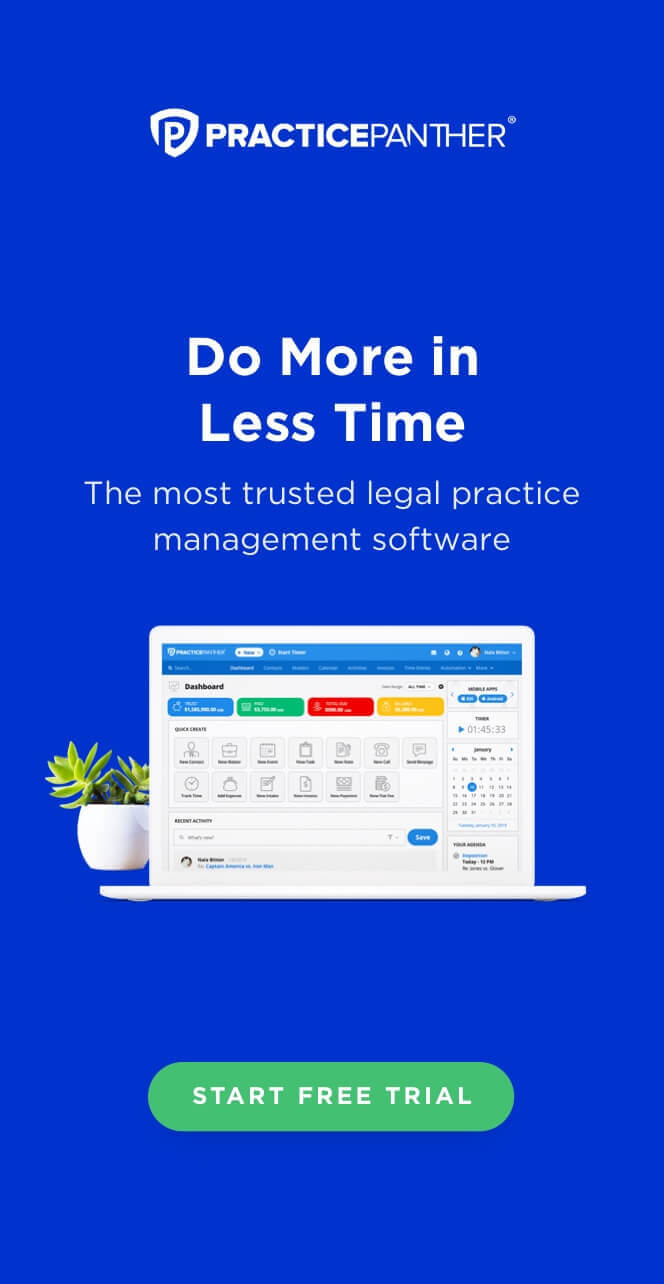The regulatory environment is ever changing, making law firm compliance more challenging than ever. Whether your practice is large or small, you have numerous regulations to follow. Failure to do so can lead to severe consequences, including reputational damage, financial penalties, or possibly the loss of your license to practice.
Your law firm must have a robust compliance program in place to ensure you stay within legal and ethical boundaries. Learn more about legal compliance, why it matters, and what you can do to ensure your law firm can adapt to regulatory challenges.
What Is Legal Compliance?
Legal compliance is the process by which individuals, organizations, or entities ensure that they adhere to the laws, regulations, standards, and guidelines for their industry, operations, and activities. This involves proactive measures to monitor legal requirements and implement policies to adhere to them and avoid legal penalties and reputational damage.
Law firms have an ethical responsibility to ensure legal compliance and preserve their reputation. If they are non-compliant, law firms can suffer reputational damage, legal consequences in the form of penalties and fines, and financial loss.
Requirements of Legal Compliance
- Federal regulations: These are laws and regulations on the federal level. Law firms must ensure compliance with federal laws that apply to their practice areas, such as intellectual property, employment, taxes, and more.
- State regulations: There are laws and regulations on the state level that law firms must comply with, which may apply to practice areas like business, licensing, employment, and consumer protection.
- International regulations: Law firms that serve international clients need to comply with international laws and treaties for trade agreements, data protection laws, human rights treaties, and more.
- American Bar Association (ABA) guidelines: The ABA has ethical guidelines and standards for law firms that cover different aspects of legal practice, including conflicts of interest, confidentiality, professional conduct, and client communication.
- Interest on Lawyers’ Trust Accounts (IOLTA) regulations: IOLTA regulations pertain to how law firms handle client funds held in trust. These regulations ensure that the interest earned on client funds supports legal aid and public interest programs.
- Payment Card Industry (PCI) regulations: If you take credit card payments for services, you need to comply with PCI regulations that pertain to the secure handling of credit card information.
Best Practices for Legal Compliance
Stay Informed
The first step in legal compliance is staying informed about the latest changes in laws, regulations, and standards that are relevant to your practice area. This may include federal, state, or international regulatory changes that affect your clients or firm. Industry publications, legal news sources, and legal seminars and conferences are a great way to keep up with changes.
Establish Compliance Policies
Develop comprehensive policies and procedures that outline the firm’s commitment to legal compliance. These policies will guide your firm’s operations within the bounds of applicable laws, regulations, and ethical standards.
Consider all possible legal compliance concerns that affect your practice area, including Health Insurance Portability and Accountability Act (HIPAA), data privacy, anti-money laundering practices, and advertising ethics for law firms.
Conduct Regular Training for Staff
Provide ongoing training to your staff on compliance topics, including ethical obligations, data privacy, confidentiality, and anti-money laundering practices. Regular training keeps your staff well-informed about the latest legal requirements and industry best practices.
Consider the compliance topics that are most relevant to your practice and develop comprehensive training materials that are customized to the roles and responsibilities of your staff members. Training sessions should be held throughout the year to keep skills sharp and provide continuous education on compliance changes and updates.
Using the Right Legal Technology
Leveraging technology is a key part of legal compliance, but they’re not created equal. Make sure you choose legal technology that complies with relevant regulations and ensures data protection while also streamlining your practice.
PracticePanther offers security features that are compliant with all relevant regulations. Powered by Box.com and secured with 256-bit military-grade encryption, you can trust that your firm’s sensitive information will remain secure and protected at all times.
Avoid Conflicts of Interest
Create procedures for identifying and managing conflicts of interest, both within the firm and when taking on new clients. Conflicts of interest can undermine the integrity of your firm and potentially lead to legal and ethical issues.
This should be written into your firm’s policies, and you should have a systematic process to identify potential conflicts of interest during the initial consultation with your case management system. You should also document all your actions to identify and address conflicts of interest, which provides documentation to support your firm’s commitment to ethical practices and compliance.
Billing and Financial
Maintaining transparent and ethical billing practices is crucial to upholding client trust and adhering to professional standards. You can support this with clear fee agreements that outline the scope of services, billing rates, and any additional costs, as well as detailed invoices that clearly itemize legal services, costs, and expenses.
Legal practice management software like PracticePanther automates your legal billing processes and ensures you’re on the same page as your client. You can stay on top of billing activities, minimize errors, and ensure compliance with billing regulations.
Keep a Good Record Tracking
Establish a centralized system for document management to store important documents, client information, and case details in a secure cloud-based platform. Your information should be labeled and searchable with security measures like version control and access permissions.
Proper record-keeping ensures easy access to important information for audits or legal inquiries.
How Technology Supports Legal Compliance
Legal technology solutions like PracticePanther help you automate your compliance tracking and ensure that your firm is adhering to all relevant regulations. With practice management software, you can maintain an organized workflow and stay compliant effortlessly.
Incorporating technology into your legal practice can enhance your ability to manage compliance effectively with automated compliance tracking, secure, centralized information storage, document management, task automation, client communication, and reporting and analytics. Armed with the right tools, you can reduce the risk of non-compliance in your law firm, improve your client services, and enhance your firm’s reputation.






